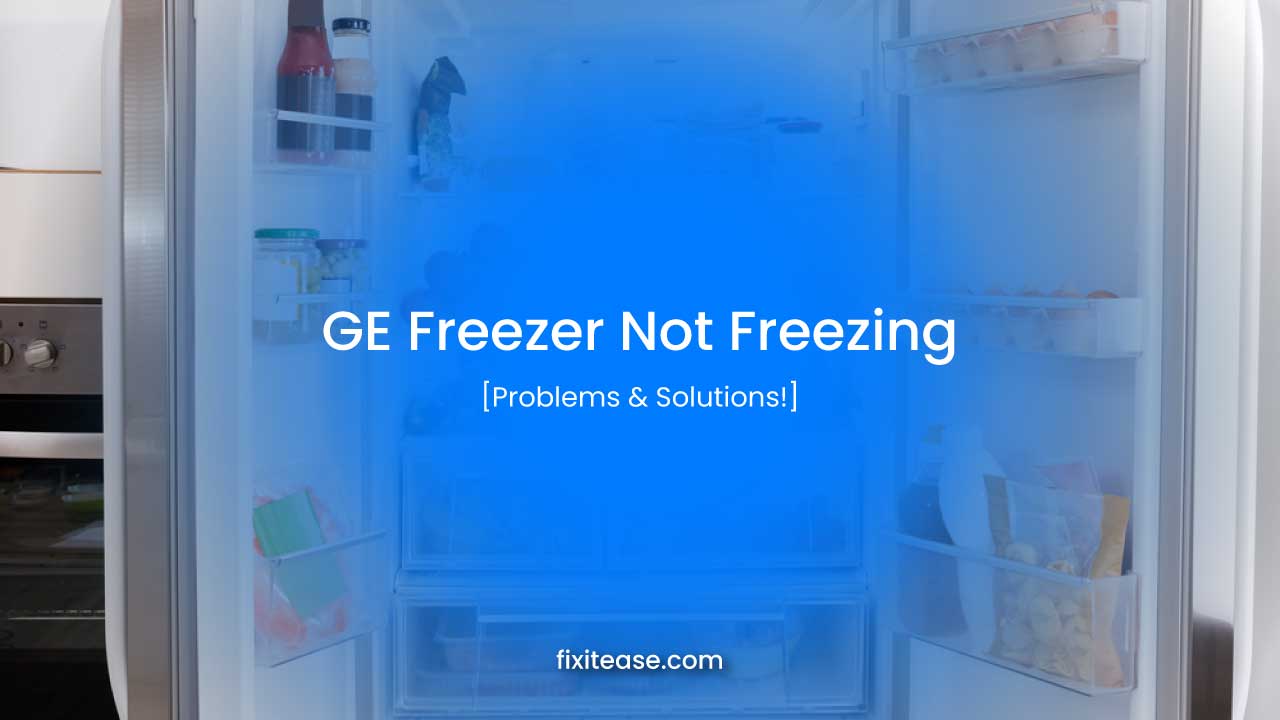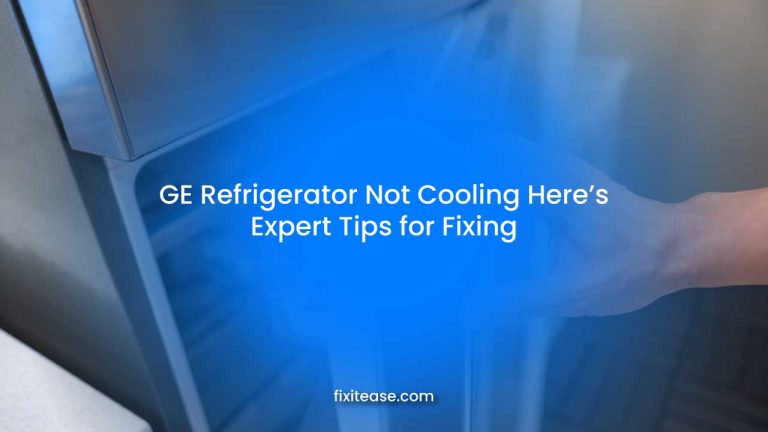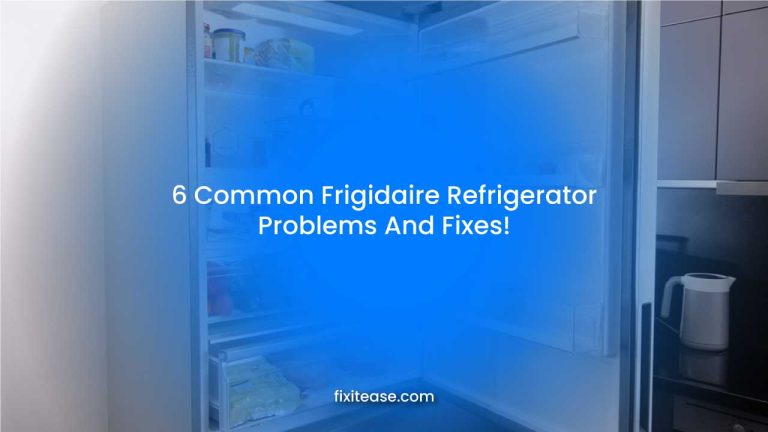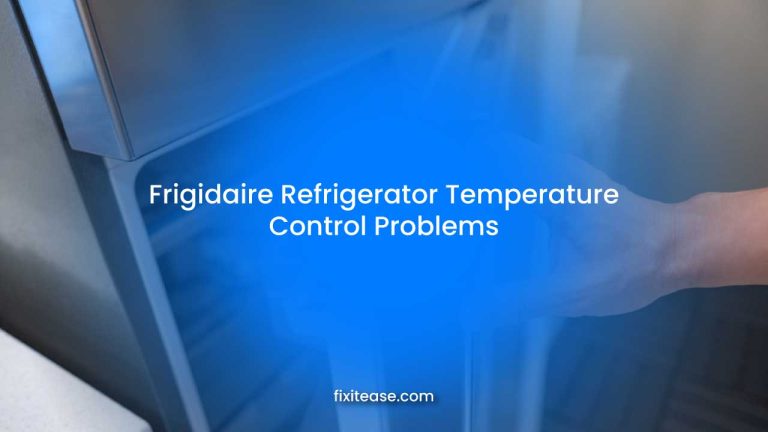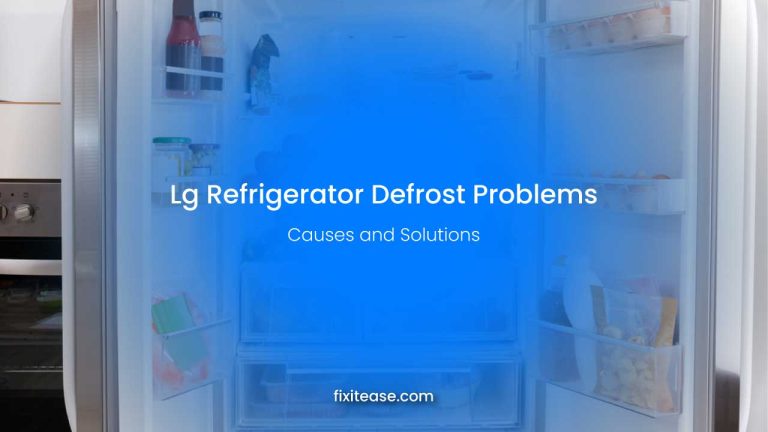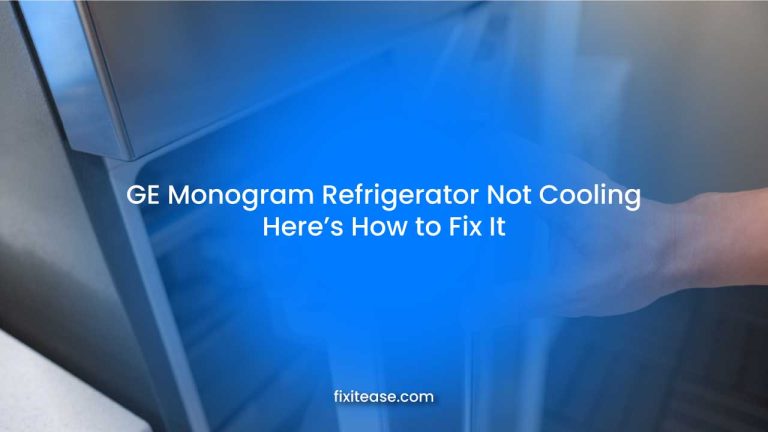Why My GE Freezer Not Freezing? 6 Common Causes and Their Fixes!
The core issue of a Ge freezer not freezing often lies in faulty thermostats or a compromised seal. Start by checking the condenser coil and ensuring the door seals are tight.
It’s a common issue many face, but the solutions might surprise you. My GE freezer is always ready to preserve my week’s groceries with a chill embrace. But one disheartening day, I discovered it had lost its cool, leaving my edibles in a lukewarm limbo. A freezer not freezing is like a heart not beating, an unsettling stillness that calls for immediate attention.
Old or new, GE freezers can sometimes present challenges. This guide will walk you through the intricacies of these challenges, offering solutions and insights. Navigate with me, and let’s restore that essential cold sanctuary in your kitchen.
Troubleshooting 101: 6 Common Causes of a GE Freezer Not Freezing
It’s a cold and frustrating journey to navigating freezer troubles. The first step in identifying the symptoms is why your GE freezer isn’t living up to its name. Let’s explore some of the most common signs that indicate your freezer isn’t freezing as it should.
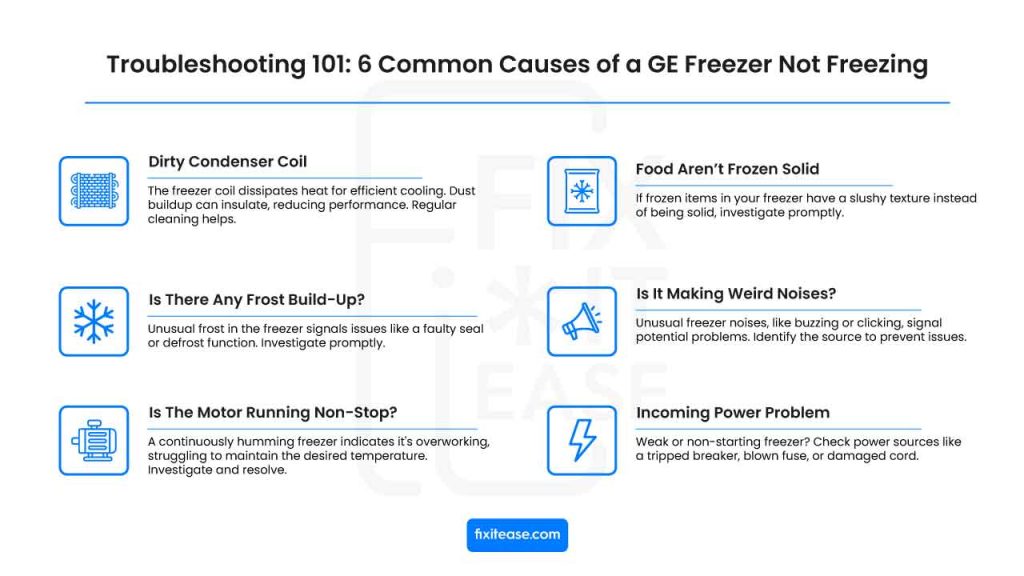
Dirty Condenser Coil
This coil is responsible for dissipating the heat from the freezer, helping it cool efficiently. As days turn into months, it can become a magnet for dust, pet hair, and other airborne particles. Imagine wearing a thick sweater on a hot day; that’s how the coil feels when caked in dirt.
Its efficiency drops, making it harder for the freezer to cool properly. A grime buildup can act as an insulating layer, preventing the coil from releasing heat. This coil may need a good cleaning for your freezer to return to its peak performance. Simple maintenance can often make a difference in how your appliance operates.
Is There Any Frost Build-Up?
Under normal circumstances, your freezer might show a thin layer of frost here and there. It’s perfectly normal. However, if you’re spotting chunks of ice or thick layers forming, a story unfolds. This isn’t just about scraping off ice or defrosting; it’s an indicator that something’s amiss.
Excessive frost build-up can indicate that the door isn’t sealing properly. It allows warm, moist air to sneak in and settle as frost. Or perhaps the auto-defrost function in many modern freezers isn’t doing its job. This heavy frost can block vents, making it harder for cold air to circulate and cool the contents evenly. So, if your freezer looks more like an Arctic expedition site, it’s time to investigate and address the frosty situation.
Is The Motor Running Non-Stop?
Naturally, a freezer’s motor doesn’t run continually; it cycles on and off to maintain the set temperature inside. But what if you notice it’s always humming, never taking a break? This constant operation clearly signals that the freezer is working overtime to achieve its cooling task.
Several factors could be at play here. The temperature might be set too low, the thermostat could be faulty, or the door seal isn’t tight, allowing warm air in. If your freezer’s motor feels like running a marathon without a finish line, addressing the underlying issues is essential.
Food Aren’t Frozen Solid
It’s a red flag when your freezer’s contents, especially food, aren’t frozen solid. A well-functioning freezer should transform liquid and soft items into solid blocks. If you’re finding your ice cream gooey or meat with a slushy feel, there’s a problem.
This inconsistency can stem from a thermostat malfunction, causing the interior to stay at a higher temperature than intended. Also, the freezer might be overloaded. That prevents proper air circulation and even cooling. It’s also possible the door was left ajar, letting in warm air.
Is It Making Weird Noises?
Weird noises from your freezer shouldn’t be brushed off. A gentle hum is normal. But unexpected sounds like buzzing, clicking, or groaning are concerning. These noises can hint at various issues.
A buzzing might indicate a fan motor problem, while a clicking could suggest a failing compressor. Components can wear out or become blocked by ice, leading to these sounds. Identifying the noise’s source is essential to prevent more significant issues.
Incoming Power Problem
If the freezer isn’t turning on or seems weaker, there might be an issue with its power source. The problem could be as simple as a tripped breaker or a blown fuse. Also, the power cord might be damaged or not plugged in securely.
In some cases, it could be a more complex internal electrical issue. It’s essential to check the power supply. That will ensure it’s consistent and uninterrupted.
How Can You Fix The Problem
Freezers are lifelines for food storage, but sometimes they can falter. If you’ve noticed your GE freezer isn’t freezing as it should, don’t panic. Here are some easy solutions that might help:
Thermostat Settings: It’s easy to overlook, but sometimes the thermostat might be too high. This small dial or digital setting determines how cold your freezer gets. By turning it down, you might find that your freezer functions correctly once again. Ensure it’s at the recommended setting, typically around 0°F (-18°C).
Examine The Door Seal: The rubbery strip around the door, known as the door seal or gasket, ensures cold air stays in and warm air stays out. Over time, this seal can wear out, become dirty, or even crack. Inspect it for damages and clean debris. It will restore the tight seal necessary for efficient freezing.
Defrost Manually: Modern freezers often have auto-defrost, but sometimes, manual intervention is required. Excessive ice build-up can hinder the freezer’s performance. Unplug the freezer to defrost. Remove the barrier to cool it more effectively.
Clean The Condenser Coils: Hidden at the back or beneath the freezer, the condenser coils play a pivotal role. When coated in dust or grime, they can’t release heat efficiently, making your freezer work harder. Cleaning them regularly can improve the freezer’s cooling capability.
Avoid Blocked Vents: How you stock your freezer matters. Overstuffing can block vents and prevent air from circulating. Sometimes, food items or ice can block the vents inside the freezer. These vents are essential for distributing cold air evenly. So, arrange items with some space between them.
Schedule Service: Think of your freezer like a car. It needs a little check-up now and then. By getting a pro to look at it regularly, you can catch small problems before they get big. They’ll clean it, check the insides, and make sure everything’s okay. This helps your freezer work better and last longer. It’s a simple step that makes a big difference.
Impact of External Environment on Freezer Performance
Freezers, like all appliances, are influenced by their surroundings. The environment around your freezer can greatly affect how well it works. Let’s understand how different external factors can impact its performance:
- Ambient Temperature: The surrounding temperature plays a pivotal role. If the room or area where the freezer is placed gets too warm, the freezer has to exert more energy to maintain its internal cold temperature. Keeping your freezer where temperatures remain relatively stable and not overly hot is good.
- Humidity Levels: Moisture in the air can be an unseen enemy. In high humidity levels, freezers are prone to frost buildup. It obstructs vents and reduces cooling efficiency. Ensuring the room has controlled humidity can help prevent excessive frost and the consequent strain on the appliance.
- Proper Ventilation: Like all machines, freezers need to breathe. They can’t release heat efficiently if they’re boxed in or too close to walls and other appliances. This can result in a reduced cooling capacity. Always ensure there’s enough space around your freezer for proper air circulation.
- Placement and Location: The specific spot where you place your freezer in your home or garage matters. Keeping it near heat-emitting appliances, like ovens or heaters, or in direct sunlight can warm it up, making it harder to cool down its contents. A shaded, cool spot is always preferable.
- External Cleanliness: Over time, the exterior, especially the back where essential cooling components are located, can accumulate dust and grime. This layer of dirt can hinder the freezer’s ability to dissipate heat, leading to reduced cooling efficiency. Wipe down and clean these parts regularly to boost their performance significantly.
FAQs
How can I check the thermostat in my GE freezer?
To check the thermostat, first, adjust its temperature setting and listen for the freezer’s motor. If the motor doesn’t start, the thermostat might be at fault. A multimeter can also be used to test the thermostat for continuity. If it lacks continuity in any setting, it likely needs replacement.
Is it normal for the GE freezer motor to run continuously?
No, a GE freezer motor shouldn’t run non-stop. It cycles on and off to maintain the desired temperature. Running continually could indicate issues like an improper temperature setting, a faulty thermostat, or warm air getting inside due to a compromised seal.
Can a dirty condenser coil cause freezing issues in my GE freezer?
Absolutely! Dirty condenser coils can’t efficiently release heat, making the freezer work harder. Over time, this can lead to cooling issues. Regularly cleaning these coils ensures optimal performance.
What should I do if there’s frost buildup inside my GE freezer?
Frost buildup can hinder cooling efficiency. First, ensure the freezer door is sealing correctly and not opening frequently. If the problem persists, consider defrosting the freezer and checking for malfunctioning components like the defrost heater.
How often should I schedule a service for my GE freezer?
It’s good practice to have your GE freezer checked annually. Regular maintenance can identify potential problems early. It will also ensure the freezer runs efficiently and prolongs its lifespan.
Conclusion
We all trust our freezers to do their one job – keep things frozen. When that doesn’t happen, it’s more than just an appliance glitch; meals, savings, and plans are disrupted. But hey, you’re not the first to encounter this; there’s a roadmap to solutions.
With some insight and a proactive approach, many issues can be resolved without breaking a sweat. For everything else? Professionals are at the ready. So, even if your freezer’s giving you the cold shoulder (or not!), remember there’s always a way forward.

